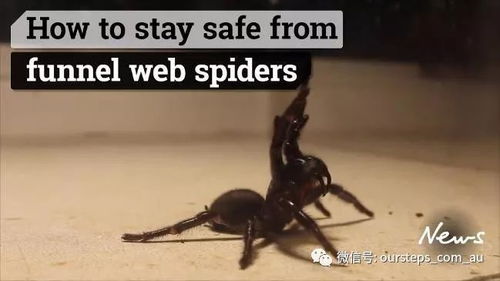
Understanding the Brazilian Wanderer Spider Bite

The Brazilian wanderer spider, also known as the Phoneutria nigriventer, is a species of spider native to South America. Its bite can be extremely dangerous, and in some cases, even fatal. If you find yourself in a situation where you might encounter this spider, it’s crucial to understand the risks and the appropriate steps to take.
What Makes the Brazilian Wanderer Spider Bite So Dangerous?

The Brazilian wanderer spider is one of the most venomous spiders in the world. Its venom contains a potent neurotoxin that can cause severe symptoms, including muscle paralysis, respiratory failure, and shock. The severity of the bite depends on several factors, such as the amount of venom injected, the size of the spider, and the individual’s immune response.
Here’s a breakdown of the potential symptoms:
| Immediate Symptoms | Delayed Symptoms |
|---|---|
| Severe pain at the bite site | Swelling, redness, and bruising |
| Swelling and redness around the bite | Difficulty breathing |
| Severe muscle cramps | Loss of consciousness |
| Abdominal pain | Heart palpitations |
| Diarrhea and vomiting | Severe shock |
Preventing a Brazilian Wanderer Spider Bite

Prevention is always better than cure, especially when it comes to the Brazilian wanderer spider. Here are some tips to help you avoid a potentially dangerous encounter:
- Be cautious when walking in dense forests, tall grass, or underbrush in South America.
- Wear protective clothing, such as long pants and socks, when exploring these areas.
- Keep your home and garden free of clutter, as spiders often seek shelter in dark, undisturbed spaces.
- Be aware of your surroundings and look out for signs of spiders, such as webbing or egg sacs.
What to Do If You’re Bitten
If you’re bitten by a Brazilian wanderer spider, it’s essential to act quickly. Here’s what you should do:
- Stay calm and try to remain still to prevent the venom from spreading.
- Remove any constrictive clothing or jewelry, as swelling may occur.
- Wash the bite area with soap and water to reduce the risk of infection.
- Seek medical attention immediately. Time is of the essence, as the venom can cause rapid deterioration in your condition.
- Your healthcare provider may administer antivenom, which is the only proven treatment for a Brazilian wanderer spider bite.
Conclusion
The Brazilian wanderer spider bite is a serious and potentially life-threatening condition. By understanding the risks, taking appropriate precautions, and knowing what to do in case of a bite, you can help ensure your safety when exploring areas where these spiders may be present.







